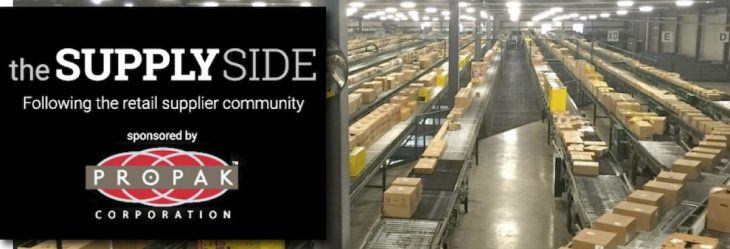The Supply Side: Artificial intelligence is slowly shaping the future of retail
by February 15, 2020 11:17 am 3,141 views

Artificial intelligence (AI), otherwise known as machine learning, is slowly reshaping retail from optimizing back-end supply chain operations to in-store execution. It is also impacting marketing, customer service engagement and anti-fraud activities, according to a report from New York-based information technology industry analyst firm 451 Research.
While AI is far from the mainstream, researchers said plenty of retailers are experimenting with how machine learning can be applied in many areas of retail. The report states retailers won’t be the only ones needing to adapt to the disruption of machine learning as customers will also face changes in how they view and experience shopping.
For AI to work to its full potential, researchers said customers will need to be comfortable with increased data sharing if they want to benefit from personalized shopping experiences via machine learning. There will also be those who will struggle with weighing out the benefits of convenience for potentially increased privacy risks.
A recent study by KPMG reviewed the state of AI deployment across retail and other industries. The Capgemini Research Institute estimates AI could add as much as $300 billion in value for the retail sector. As of late 2018, 28% of retailers surveyed by Capgemini were testing AI, up from just 4% in 2016. Capgemini also found AI was creating more jobs than it was replacing.
The majority of use cases focus on customer relations and sales, but Capgemini said there is also a $144 billion savings opportunity from the supply chain through improved efficiency in routing, warehousing, returns management and procurement.
Walmart is using machine learning to automate price markdowns. All clearance markdowns are now automated at the retail giant. The goal is for each store to sell through its product just before the new inventory arrives. In the test stores where machine learning has taken over the inventory management, Walmart said it has increased the sale-through rate by 14% in the first couple of months.
Walmart also recently showcased its Alphabot robotic system in Salem, N.H., by using autonomous carts to retrieve products. Robots assemble orders, then send them to a human employee to check the accuracy, bag them and complete the delivery. Alphabot manages all shelf-stable, refrigerated and frozen products, but fresh products continue to be selected and picked by human employees, the retailer said. Walmart has been testing the Alphabot system for nearly a year, saying the benefits include increased picking speeds of 1,700 picks per hour and storing orders for several hours at appropriate temperatures.
Tom Ward, senior vice president of digital operations at Walmart U.S., said the standard online grocery orders are picked by personal shoppers who fill eight orders at one time, but that is only a fraction of the efficiency achieved with the Alphabot system. Walmart has planned two new Alphabot-enabled warehouses that will serve several store pickup locations. The warehouses will be smaller than the test location in Salem. Given the expense of intuitive technology systems, Walmart officials said it will use them where they make the most sense.
Walmart is also using Bossa Nova robots to scan inventory, a test that was recently expanded to 800 stores in addition to another robotic system being used to scrub floors in hundreds of stores. Machine learning is being used to track inventory, and customer interfaces with chatbots (personal shopping assistants) are being used via the retail giant’s mobile app.
The National Retail Federation (NRF) recently held its annual conference in New York, and some of the biggest topics discussed were the impact of human-robot interactions and how retailers of all sizes are taking advantage of AI and machine learning across the businesses. Several retailers highlighted ways they were using AI and machine learning across their businesses.
Belk Inc., a department store with nearly 300 stores across 16 states, said it is using AI to help master inventory management. Belk executives said the company is integrating machine learning into ordering, replenishment and allocation systems, including calculating demand for specific sizes by store. Belk said virtual assistants do the heavy lifting, but they are not replacing humans.
Dick’s Sporting Goods is also using machine learning to identify patterns and make estimated delivery dates more accurate, according to David Lanners, the company’s vice president of retail technology.
Starbucks is also using AI in a process it calls “Deep Brew,” which leverages AI and machine learning to more accurately manage inventory and ensure adequate staffing for busy periods. The company reports as employees have more time to connect with customers, which has delivered a higher average ticket.
David’s Bridal is also betting on AI to help power its new concierge service designed to help drive more customers into stores. The specialty retailer emerged from bankruptcy in January 2019 and has been working to improve the in-store experience and elevate online customer engagement.
David’s recently launched an AI-powered concierge bot through Apple Business Chat. It connects brands and human customer service agents via bots. Customers use the chatbot to ask questions or seek insights that are shared with stylists. Customers book their appointments online and their questions and online conversation are relayed to the stylist who will assist them in-store.
MKM Partners executive Roxanne Meyer recently said AI may finally be nearing “a tipping point” as many retailers are exploring the possibilities, but only a few are leveraging it in a meaningful way.
Editor’s note: The Supply Side section of Talk Business & Politics focuses on the companies, organizations, issues and individuals engaged in providing products and services to retailers. The Supply Side is managed by Talk Business & Politics and sponsored by Propak Logistics.
